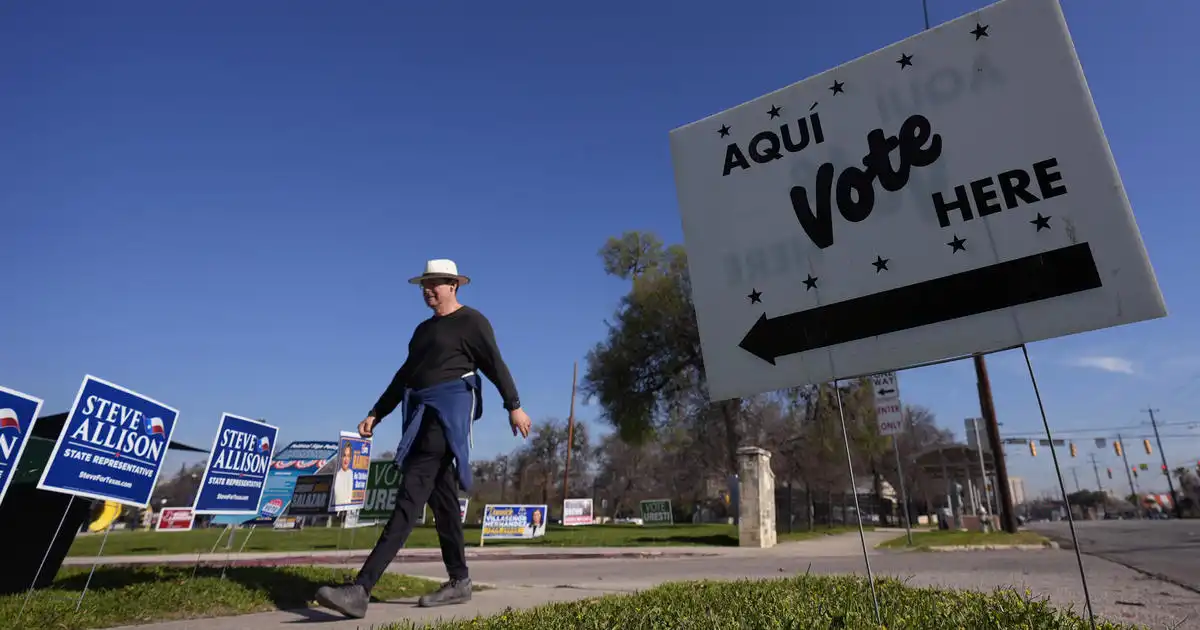Super Tuesday: How Tomorrow's Voting Works
Super Tuesday on March 5 sees the most states holding presidential primaries. Biden leads Dems, Trump faces challenges, Supreme Court ruling.
Super Tuesday, which falls on March 5, marks the day when a significant number of states will be hosting presidential primaries or caucuses. This day is crucial as over a third of all the available delegates for both the Republican and Democratic nominations are up for grabs on Super Tuesday.
In the Democratic race, President Biden is currently the frontrunner with no major primary challengers. On the Republican side, former President Donald Trump is leading the race against former U.N. Ambassador Nikki Haley.
Interestingly, Trump has faced some legal challenges in two Super Tuesday states, Colorado and Maine, relating to his involvement in the post-2020 election insurrection. Despite being disqualified from the primary ballot in these states under Section 3 of the 14th Amendment, the U.S. Supreme Court has ruled that only Congress, not states, can enforce Section 3, meaning votes for Trump will still count.
Trump is also facing federal indictments in Washington, D.C., and Florida, as well as state charges in New York and Georgia. The outcome of these legal battles remains uncertain as the presidential election approaches.
Meanwhile, concerns have been raised about President Biden's age, handling of the Israel-Hamas conflict, and potential voter apathy in the Democratic camp.
On March 5, registered voters in states hosting presidential nominating contests will cast their votes. Fifteen states will hold GOP contests, including primaries in Alabama, Arkansas, California, Colorado, Maine, Massachusetts, Minnesota, North Carolina, Oklahoma, Tennessee, Texas, Vermont, and Virginia. Additionally, Alaska and Utah will host caucuses.
Of the 15 states, 11 will have open GOP primaries, allowing more than just registered Republicans to participate. In 2016, Trump won eight of the Super Tuesday states, and this year, he has dominated the GOP presidential nominating contests, losing only the D.C. Republican primary to Haley.
The same states, except Alaska, will also host Democratic primaries, with American Samoa holding Democratic caucuses. The Iowa Democratic caucuses, conducted entirely by mail in January, will release results on Tuesday.
Super Tuesday gets its name from the high number of delegates at stake on this day compared to any other during the primary campaign. A total of 865 Republican delegates will be allocated, with the nominee needing 1,215 delegates to win. On the Democratic side, 1,420 delegates will be allocated on Tuesday, and 1,968 delegates are needed to secure the nomination.
Looking ahead, estimates suggest that Trump could potentially secure enough delegates to clinch the Republican nomination by March 12. The campaign will continue with more primaries scheduled in the coming months, culminating in the final primaries on June 4.
While Super Tuesday is not a holiday, some states have offered mail-in or early voting options to make it easier for voters to participate in the primaries.











Comments on Super Tuesday: How Tomorrow's Voting Works